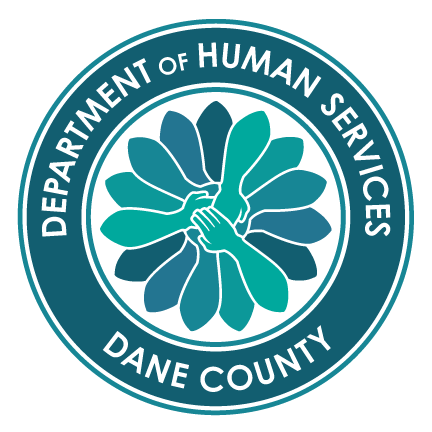The Youth Justice Disproportionate Minority Contact Solutions Workgroup was formed in September, 2008 with the purpose of bringing together key stakeholders and community leaders to examine the DMC issues facing our community (Co-Chaired by Judge John Albert and DCDHS Administrator Robert Lee). Members were drawn from areas throughout our community including the United Way, Centro Hispano, YWCA, neighborhood centers, faith-based programs, schools, police departments, attorneys, Urban League, NAACP, Juvenile Court, Dane County Department of Human Services, contract agencies and others.
Sub-Work Groups were identified to develop measurable responses to Youth Justice-DMC. Each Sub-Work Group was charged with formulating comprehensive and viable prevention and intervention strategies within their assigned work area to reduce YJ-DMC in our community. Four categories of recommendations were identified:
- Training: Cross disciplinary training for system partners, training for parents about systems and how to better advocate for the children as well as competency development training for youth.
- Coordination: Improved coordination across systems to support institutional responsiveness to race, culture and youth, inclusive of non-traditional partners.
- Disposition: Alternative responses to issues that bring youth into formal systems such as deferred prosecution.
- Skill Development: Help youth and families feel empowered and connected to their communities resulting in promotion of pro-social behaviors and minimization of negative behaviors.
In April, 2019, a group of youth justice stakeholders reconvened to examine progress made since 2009 and develop new recommendations for policy and practice changes to have further positive impact on reducing disparities and promoting equity for youth and families of color in Dane County. Although each of the workgroups had different domains to explore, there were some themes that emerged across most, if not all of the group discussions, including:
- All groups discussed both the importance and the challenges of developing meaningful relationships with youth and families.
- The difficulty in engaging with/providing support to youth and families early on, preventing issues from arising and providing greater opportunities for success.
- The importance of gathering and tracking data by ethnicity/race in order to evaluate where the systemic problems exist and whether various programs or interventions are having the desired impact of reducing disparities.
- The importance of recognizing the legacy of practices and societal influences that have led to and/or contributed to disparities and taking proactive steps to reverse the course of disparate treatment for youth and families of color.
Recommendation highlights include:
- Development/increase use of intensive, research based mentoring services that can be provided to youth, with a particular focus on supporting culturally specific services that can more effectively engage with youth of color.
- Increased support of program services that support the entire family/kinship community and increased investments in local programs with evidence of success for families of color (ex: Family Group Conferencing & Parent Peer Specialists, Restorative Justice Circles).
- Promote and utilize power sharing leadership models that allow for youth, families, and communities of color to have tangible decision making power over the systems that impact their lives.
- Continued discussion among the judges and other key stakeholders in the court process to identify best practices for the development of more limited court orders that focus on a smaller number of the most critical elements the youth/family should work on while a youth is under supervision.
- Expansion of resources to support 17-18-year-old youth with Municipal Court citations.
- Utilize a “Credible Messenger” program model/strategy of violence interruption that involves community members with lived experience in providing support and “intense mentoring” for our highest risk level youth and other pathways for healing from trauma that are based in restorative/transformative justice and community accountability.
- Staff receive mandatory additional professional development and coaching in the area of Culturally Responsive Teaching and Practices
Please navigate the resources at the bottom of this page for a complete review of the 2009 and 2019 recommendations.
